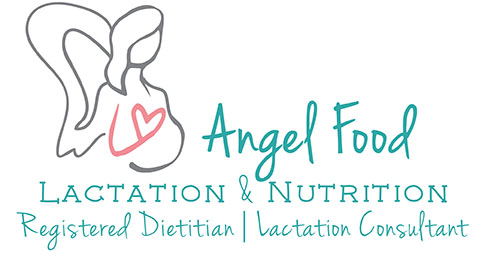We talked about the prevalence of food allergies, how a baby’s immune system is established, and how maternal immunity plays a role. Now, we are diving a little deeper into understanding how mom’s gut influences baby, what causes an unhappy digestive system, and what we can do about it.
Are You Being A Good Host?
Deep within the crevices of our gut we are hosts to billions of microorganisms, or bacteria that make up our Microbiome. These gut dwellers are such an important part of our body. They kill ‘bad’ germs that make their way into our digestive system, establish and maintain our immune system and even help digest our food. We need them to be happy, healthy, hard workers! Certain aspects of our American lifestyle cause many people to lack the hospitality necessary to keep these good bacteria alive. Behaviors such as being overweight/obese, an excessive use of antibiotics, a highly processed diet low in fiber, poor intake of fruits and vegetables, chronic stress, and poor bowel habits are a few examples. The key outcome from each of the offenders listed above is inflammation. A number of chronic health concerns have been linked to inflammation such as autoimmune diseases, arthritis, Ulcerative Colitis, IBS, chronic fatigue, and even heart disease. Some may say, “You mean if I am overweight and have symptoms of IBS, I have inflammation… the same inflammation that could lead to other chronic conditions?” The answer is yes!
Inflammation over time damages the lining of our gut. The folds of tissue you see in the healthy intestinal lining increase the square footage of our intestines, helping to absorb all the nutrients found in food. Notice how they are virtually gone in the damaged gut, leading to poor digestion and, over time, something called leaky gut syndrome. This is where the bad news enters the scene… when our cells become leaky, they allow particles, allergens, bacteria, and other offenders to pass through into our system where it can cause many unwanted side effects.
How does this relate to lactation?
The cells that line our gut are the same types of cells that make up our milk-making factory! How does this relate to allergy and sensitivity risk, you ask? For some women with chronic inflammation or leaky gut syndrome, this inflammation is present within their milk making cells, allowing whole proteins and antigens to pass through their milk to their baby.
Now, let’s stop here and point out that even with this undesirable process, breastfeeding your baby is still the best choice to make for your little one. Know why? Some studies are linking maternal gut health with baby gut health, meaning that mom’s gut environment develops and establishes the baby’s gut en utero, as well as throughout lactation. So even before feeding your baby, his/her gut cells may be predisposed to this inflammation.
But wait; don’t throw in the towel just yet. We have something on our side… the most amazing food known to man, one that’s easily digestible and equipped with anti-inflammatory, antibacterial, antiviral, and antifungal properties. What am I referring too? Breast milk! There is no other source of infant nutrition that can compare to the powers of breast milk, making it the best food to aid in the growth of a healthy immune and digestive system.
Still worried? Take a deep breath because all of this can be reversed. With good nutrition, you can make your way back to being the hospitality queen… renovating your gut environment to serve your microbial ‘guests’ the best food and provide the strongest cells for their home. Strengthening your microbiome and reducing inflammation will get you and your little one on the fast track to improving your gut health and overall well being.
I am in! Now what do I eat?
Improving your diet can begin with 3 simple steps.
First, begin boosting your microbiome of good bacteria by consuming probiotics in the form of fermented foods such as kefir, kombucha, sauerkraut, tempeh, kimchi, and more. If these foods do not appeal to your palate, find a probiotic supplement that contains many strains and species of bacteria and take on a daily basis. Remember to check with your doctor before using supplements.
Second, increase the fiber rich foods in your diet via fruits, vegetables, and whole grains. Why do you ask? First, fiber, also sometimes called prebiotics, is the ‘food’ that feeds your good bacteria. Once we place them in our digestive system, we must feed them! Additionally, fiber helps to regulate our digestive system, allowing bowel habits to improve and, therefore, reducing inflammation caused by constipation.
Lastly, monitor the fats you are consuming on a daily basis. Focus on consuming healthy fats. Omega 3 fats are known to reduce inflammation and improve the health of our cells. This can be found in foods like salmon, walnuts, rice bran or olive oil, flax seeds, etc instead of the omega 6 and saturated fats found in the abundance of processed foods we find on our grocery store shelves. Guess what? The fats you choose to consume reflect the fats found in your milk and en utero! That’s right, if you increase the omega 3’s found in your diet, you will directly increase the amount in your baby’s diet. This special perk can increase the retinal development in your baby’s eyes, as well as increase cognitive development for your baby’s brain!
